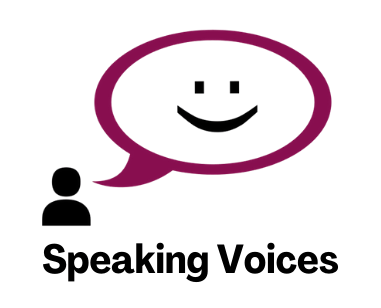Reading And Speaking Are Two Different Skills
For many non-native English speakers, there is a misconception that when we do well in reading, we are able to speak English fluently. However, reading is a passive skill. We take time to read what is on the paper and even though you can read complex texts with ease, speaking requires a different skill that includes fluency, pronunciation, and the ability to think on your feet.
When we’re speaking, our brain must process everything quickly, the grammar, the vocabulary, and the sentence structure. There doesn’t feel like there’s enough time to understand what the person has said and for us to express our views. This is due to the gap between passive understanding (reading) and active usage (speaking) which can cause frustration for any English learner who often feel they know the language on paper but struggle to speak it in conversation.
Having Trouble Finding The Words
A common struggle for non-native English speakers is the difficulty of finding the right words during conversations. We understand what the other person is saying and when we come to speak all the words come out differently. Suddenly it’s not as fluent as you had planned in your head, a moment ago. Speaking can be challenging as a non-native speaker because we are faced with fast-paced dialogue and pressure to perform.
This may lead to long pauses, filler words or even abandoning our sentence mid-way. We need to get rid of the fear of being judged as this can make us hesitant to speak making us feel like we have a limited vocabulary or struggle with anxiety about making mistakes which makes it difficult for us to express our thoughts freely. This can impact our confidence when speaking English making it harder to express ourselves and connect with others.
English Spelling or Pronunciation Rules
English is complex when it comes to spelling and pronunciation, which adds more challenges for non-native speakers. Unlike some languages, where you’ve learnt the alphabet, you can read, write and speak the language, in English there aren’t many rules you can follow which makes it more confusing when trying to learn the language.
Especially when speaking, the spelling doesn’t always match the pronunciation, for example, the same letter combinations at the end of the word can be pronounced differently like “through” vs. “though”. These two words have very different vowel sounds and on top of this, we have to learn about the stress, rhythm and intonation of the English language. This trial and error process of knowing how to pronounce words correctly can impact our confidence in speaking English.
English Conversation Practice
Trying to find a partner to practice English is another main problem we face. Unless we are in an English-speaking country and our workplace speaks English, it will be hard to find opportunities where we can practise our speaking. Even if we are working in the UK and we are surrounded by native speakers, it doesn’t mean we will become good at speaking automatically.
When we don’t practise, we start to forget all the vocabulary, the grammar that we have studied. The speaking part is the most crucial when we want to become fluent in English. We have to find ways to practise with others so we can become confident in speaking English. If we don’t practise, we will never become good at the thing we want to achieve. This goes for most of the goals we set in life.
The Answer To Speaking Better English
Speaking English fluently is a skill we have to maintain and practice. When we have the opportunities we have to dedicate time to practising and evaluating how we say certain sounds. If we don’t have a process for correcting our mistakes, we will always make the same mistakes. Learning from an expert always helps, and I don’t mean find another English teacher or enrol on another English language course, even though they can help in some ways.
If you really want to sound like a British native speaker, you need an expert who has gone through the same process as you, all the struggles and frustrations, but has become an expert who also understands the science behind how you speak. Everybody’s voice is different, so why go to someone who will teach you the same as everybody else?
This is why I’ve created practical speaking courses to help you speak better English and improve your confidence when speaking English. They are designed so you can use what you have learnt and take it out into the real world. I teach you the techniques and also teach you how to change your voice, and how to correct all your mispronunciations. There are 2 different courses I offer which help you improve your English speaking skills.
British Online Accent and Pronunciation Membership
This is a self-study programme where you learn all the British sounds and learn how to pronounce each word correctly with the different spelling patterns. Have access to the 365 lessons that are available 24/7, which include videos, audios, practice materials and much more. Sign up here
6 Month Transformational Course
If you want to go that step further and combine both the Conversational Speaking Classes with the Accent and Pronunciation Membership and learn 1:1 with me then this is how you can do it. We go through a programme transforming your accent to a British neutral accent, where you get 1-hour session every week with me and also unlimited offline support. Want to know more, book a call with me to get started!

